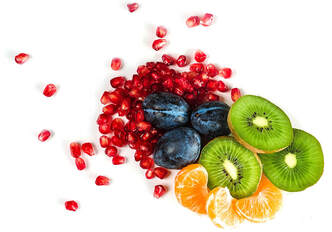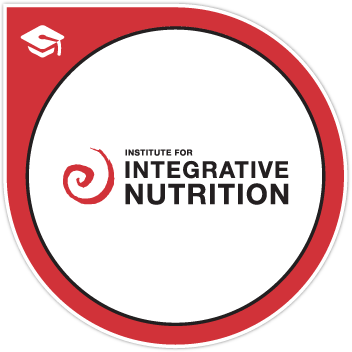|
THE MIND-BODY-SPIRIT CONNECTION
Food is our most intimate contact with our external environment. What we eat, digest, absorb, assimilate, and excrete becomes us. Food is information. Food interacts with our genes, regulating or disrupting normal biological pathways.
Your relationship with food: Are the foods you are eating loving you back? I believe that food should taste as good as it makes you feel. Each time we eat, we send messages to different parts of our bodies. When we eat nutrient-dense health-supportive foods, these messages are healthful and appropriate. But when we eat highly processed, poor-quality, nutrient-poor foods, we are not giving our cells the right messages. DID YOU KNOW HOW WE EAT CAN BE AS IMPORTANT AS WHAT AND WHY WE EAT? |
|
Nutrition is so much more than food you can and cannot eat. It is fueling your body with the raw materials it needs to thrive. It is not about starving or depriving yourself. Incorporating the Nutrition Pillar into your journey takes time. You will need to reevaluate your grocery shopping habits, kitchen essentials, and most likely spend some time educating yourself about what it really means to eat healthy.
I believe having a healthy relationship with food is the key to attaining any nutritional goal. People are born with the ability to maintain health and weight without following strict diets. The body and the brain work together sending rich messages back and forth enabling us to sustain health while feeling satisfied. Over time many of us stop listening to our bodies. We impose rules and make judgments about the foods we eat distorting our relationship with food and our bodies. By restoring the natural body mind connection and gaining factual nutrition knowledge, you can be the healthy person you were born to be.
And by the way, when I say “normal,” I just mean making decisions about food that come from your own feelings, heart-centered, desires, cravings, and needs, as opposed to external rules. People who have been on restrictive diets with long lists of rules have often lost their natural hunger and fullness cues because they rely on calorie counts, schedules, meal plans, and devices to tell them when and how much to eat.
Food should be fresh, not just fast. If you begin to cook simple and healthy recipes, you will save money, spend more time with family, and see positive changes both inside and out.
So, what are the features of normal eating? It is tough to define exactly, but I think it is made up of a few different components, some of which are about our eating behaviors, and some that have to do with our attitudes about food and eating. To me, normal eating is:
I believe having a healthy relationship with food is the key to attaining any nutritional goal. People are born with the ability to maintain health and weight without following strict diets. The body and the brain work together sending rich messages back and forth enabling us to sustain health while feeling satisfied. Over time many of us stop listening to our bodies. We impose rules and make judgments about the foods we eat distorting our relationship with food and our bodies. By restoring the natural body mind connection and gaining factual nutrition knowledge, you can be the healthy person you were born to be.
And by the way, when I say “normal,” I just mean making decisions about food that come from your own feelings, heart-centered, desires, cravings, and needs, as opposed to external rules. People who have been on restrictive diets with long lists of rules have often lost their natural hunger and fullness cues because they rely on calorie counts, schedules, meal plans, and devices to tell them when and how much to eat.
Food should be fresh, not just fast. If you begin to cook simple and healthy recipes, you will save money, spend more time with family, and see positive changes both inside and out.
So, what are the features of normal eating? It is tough to define exactly, but I think it is made up of a few different components, some of which are about our eating behaviors, and some that have to do with our attitudes about food and eating. To me, normal eating is:
- Eating when you are hungry and stopping when you are full, most of the time.
- Not beating yourself up about eating in way that diet culture says is too much or bad.
- Understanding that you are not what you eat, and you are not defined by your diet (or your weight).
- Understanding that food is not the enemy or something to be feared or controlled.
- About trusting your body and honoring your hunger and fullness cues.
- Taking advantage of meaningful food-related experiences and social interactions such as eating local foods when you travel without stressing about how many calories or carbs they contain.
10 SUGGESTIONS TO HELP SIMPLIFY HEALTHY EATING
You can tackle them all at once or implement one at time. Make your kitchen as part of your sanctuary of good eating, because that is where health begins.
- The Life in Foods Give Us Life and Light
Fresh foods are live energy and have the grater enzyme activity. Enzymes are to our bodies like spark plugs on the engine of a car. - Plan Ahead
Planning helps you create balanced meals and saves you shopping time and money. - Eat Small Frequent Meals
Each of us is very unique with our own special needs. If eating small and frequent meals is what rhymes with you then respect and honor yourself for that. The concept of bio-individuality is the idea that each of us has unique food and lifestyle needs. - Eat Mindfully Chewing Our Foods
The goal is to shift focus from external thinking about food to exploring and enjoying the eating experience. Eating mindfully encourages proper digestion and can aid in nutrient absorption, promote ideal body weight, and help you develop a healthy relationship with food. Eating mindfully is relax while eating. Many times, we do not even stop what we are doing long enough to sit down when we eat. Remember that eating is honoring yourself, connecting with your body and spirit. Being in fully presence about your experience and becoming aware about your emotions. If you eat while you are under physiological stress, your body cannot fully digest, assimilate, and burn calories.
Believe or not chewing is one of the most important aids to our digestion and it is also one we often take for granted so much that we sometimes just swallow our food whole, forgetting to grind our teeth altogether! When you are stressed, excess cortisol is produced which creates an inability to lose weight. It puts the body in the opposite condition you want it to be in to metabolize, assimilate, and digest. So, the point here is to take a moment when you are about to chow down. Take a few deep breaths. Make sure you actually chew your food. There is a reason why chewing is a part of eating, so, count your chews. Try to make it to 30 before swallowing. Be mindful and conscious of the process. Breathe, chew, be grateful and be in the moment. Do these things, and you will better digest your food and absorb nutrients. Your body will love you for it. - Plan To Fuel Your Day
You often hear that breakfast is the most important meal of the day. Although it is easy to skip breakfast, it is crucial to make eating in the morning a top priority. The morning rush will not be an excuse for skipping this important meal. Prep the night before. Embrace healthy fats, protein, and fiber. Eating breakfast helps to boost your metabolism (your body's engine) and to maintain energy levels throughout the morning. Skipping breakfast often leads to unhealthy snacking on foods that give quick bursts of energy, such as soda, candy, and processed carbohydrates. These food choices do not provide the energy and nourishment that keep you performing at your best throughout the day. - Eat When You Are Hungry and Stop When You are Satisfied
We regularly turn to food when we want love and support. Do not eat if you are not hungry, but also do not wait until you are overhungry because that is when we lose control and eat the sweetest, fastest foods in sight. Also get in touch with what "satisfied," or "pleasantly full," feels like for you. Relax before you start eating, and then eat slowly. Remember that it takes some time for your stomach about 20 minutes to tell your brain that you are full. Stop a quarter of the way through your meal and check your hunger level. Eating until you are satisfied IS a skill that you can (re) learn. - Eat Local Foods In Season
Local produce is the freshest, tastier, more nutrient-dense, and less expensive plus has the highest level of nutrients. Eating in harmony with the cycles of nature connects us more deeply to the earth and fosters in us a respectful reverence for the food we eat. Each season offers an array of beautiful fresh produce, this is a great time to start experimenting and trying new recipes or reworking those old ones to incorporate more seasonal fruits and vegetables. - Choose Organically Grown Foods Whenever Possible
Our food these days is not only deficient in nutrients, but also full of pollutants and farming chemicals. The modern process of denaturing foods via heavy refining and chemical treatment deeply affects the life force of our food , making it difficult for us to reach equilibrium and health. Organic foods generally have higher nutrient and antioxidants levels because farmers who use organic methods add more nutrients to the soil. Organic food is a personal choice. People choose organic food for different reasons. Whether you choose organic or non-organic food, you can still eat healthy. However, when you choice eating organically you are making a big different for your health and the environment. - Eat Fruits and Vegetables as Possible
Fruit and vegetables are a good source of vitamins and minerals, including folate, vitamin C and potassium. They are an excellent source of dietary fiber, which can help to maintain a healthy gut and prevent constipation and other digestion problems. Vegetables and fruits are an important part of a healthy diet, and variety is as important as quantity. No single fruit or vegetable provides all of the nutrients you need to be healthy. Eat plenty every day. - Drink Water
Our bodies are about 70 percent water. Did you know according to Harold Hanson Mitchell, Journal of Biological Chemistry 158, the brain, and heart are composed of 73% water, and the lungs are about 83% water. The skin contains 64% water, muscles and kidneys are 79%, and even the bones are watery: 31%. If we do not adequately hydrate our cells, they cannot function properly. Stay hydrated even in the wintertime by infusing your water with citrus slices, cucumber, berries, or herbs. Making water more interesting will encourage you to drink up.
RESPECT YOUR OWN BIOCHEMICAL UNIQUENESS.
Our bodies run best on real foods, a natural-foods diet is the ultimate direction in eating for all of us, no matter exactly how we shape it.
What you do with your fork impacts everything." |










